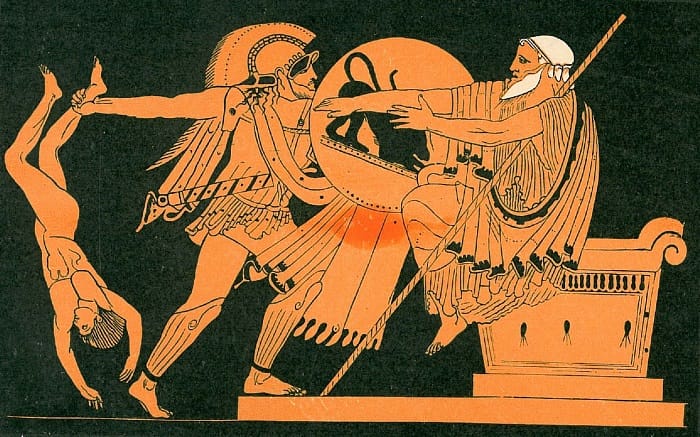Aristotle and eudaimonia essay
Aristotle defined a special term – “eudaimonia” – which can be translated as “human flourishing”. Aristotle used this word to describe the way of living that allows a human being to flourish, when success and happiness accompany an individual in all spheres of life (Mosser, 2013). Aristotle stated that the way to achieve flourishing was practicing virtues of character (Warburton, 2004).
In this context, a virtue can be described as moral excellence located in the middle of the scale between an excess of a particular quality and a deficiency of particular quality (Mosser, 2013). In other words, a virtue is the “golden middle” with respect to the considered trait. For example, the virtue of courage is in the middle between recklessness and cowardice. According to Aristotle, only the person who managed to harmonize all virtues achieve eudaimonia (Warburton, 2004). So, this state is significantly different from the general feeling of happiness and means harmonious development which causes happiness.
From this point of view, it is not possible to state that someone who is greedy, selfish or self-indulgent yet enjoys great pleasure really achieves flourishing (eudaimonia). Indeed, such person does not harmonize his or her character traits and will experience difficulties and challenges in life due to such behavior and attitude. For example, one former classmate seemed to be happy with his life, but he was very arrogant and self-centered. As a result, although he was mostly pleased and happy with himself, many people avoided contacting him and refused to help him because of his attitudes. The classmate was very surprised and upset because of their reaction. Thus, the social aspect of the former classmate’s life was not flourishing. Aristotle’s position that flourishing can be achieved only by those who practice virtues with regard to all traits is proven by real-life situations: those who have an excess of some trait or lack some vital traits cannot lead a harmonious life and cannot achieve eudaimonia.
Do you like this essay?
Our writers can write a paper like this for you!



